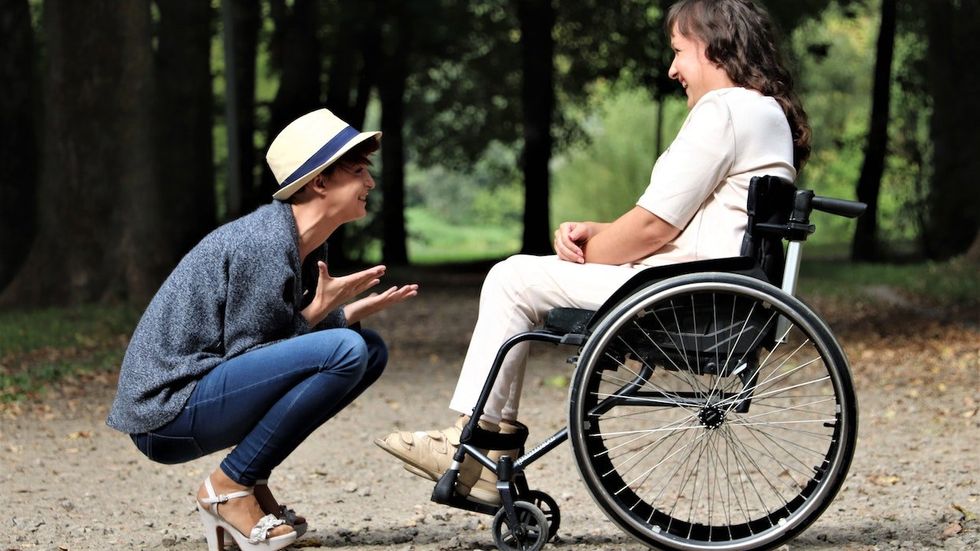A little more than a year ago, I became president and CEO of Easterseals, one of the largest providers of services and advocacy for people with disabilities in America. When I joined, the organization was entering its 103rd year of operation. Today, Easterseals is comprised of 71 Affiliates across the country — employing approximately 32,000 staff and serving millions of individuals with disabilities throughout their lifespan, including seniors and veterans. Promoting diversity, equity, inclusion, and accessibility was in Easterseals’ DNA long before the DEI acronym for universal equity came into use. Yet few people understand what we do.
How is it possible that an organization as large as Easterseals is so anonymous to the public? Anonymous — when Easterseals has been around for more than a century and delivers tens of thousands of home and community-based services nationwide for people of all ages and with all disabilities, including job training and placement for disabled individuals, older adults, and veterans.
I suspected it was due to a lack of consistent marketing — out of sight, out of mind. Because nonprofit organizations rely so heavily on private donations, they’re often forced to choose between service provision and payroll instead of marketing and communications. I wrestled with why the organization’s sheer longevity and its continual expansion for decades had not brought more attention to its mission. One in four Americans or 61 million people in this country identify as being disabled. They represent our country’s largest minority. So why then is Easterseals not a household name and a more widely recognized brand? I think the reasons are complicated, but I now know it isn’t entirely because of a lack of consistent brand marketing throughout its 100 years of service.
I believe it has much more to do with the fact that disability is broadly misunderstood.
If you asked 20 different people to define disability, most would struggle to provide a cogent response. What many people don’t understand is that disability refers to conditions that affect the body or mind and make it difficult or impossible to do certain activities or functions. The Centers for Disease Control & Prevention (CDC) states that a range of disabilities can impact a person’s vision, movement, thinking, memory, learning, communication, hearing, mental health, and social relationships. That’s a lot for even the most sophisticated brand marketing campaign to convey, especially since not all disabilities are immediately visible. Because disability is complex and covers so many conditions that impact physical, neurological, and mental health, disability can be an intimidating topic.
Easterseals remains committed. We are working very hard to improve the public’s understanding of disability, to elevate and expand awareness about the needs of the disabled community and to fight alongside them for their rights. We are working closely with disability advocates within our organization, as well as other organizations committed to full equity, inclusion, and access to accomplish this. I think, when we amplify the voices of 61 million disabled people, the chorus will be unignorable.
We are making progress, but there is much still to do as outlined in Easterseals’ recent State of Disability Equity and Access Report. I think a lot about how the LGBTQ+ community, in the face of current threats to their rights, continues to advocate and come together for collective change. We see the impact of the Pride movement across corporate America, influencers, and celebrities. As there are disabled people in the LGBTQ+ community, we see how we can further our reach and make progress together.
If Easterseals can continue to attract the attention of Fortune 500 companies, celebrities, and influencers, we may make that progress, but the crux of making life more equitable for all people with disabilities lies in the promotion of understanding among the masses.
Disability rights advocate Emily Ladau, author of Demystifying Disability, is making headway by breaking disability into digestible, understandable pieces, and explaining the disability lexicon so the topic of disability is less intimidating. She and other advocates are educating people that being disabled should not prevent people from working, from playing sports, from vacationing and traveling, from having children and building families, from being significant contributors to society — from living life to the fullest!
As a committed advocate for disabled Americans, Easterseals works in concert at the national and local community levels to affect change through greater understanding and awareness of disability. Maybe when you started reading, you were not familiar with Easterseals or our work. I hope now that you know who we are and what we do, you’ll join us by visiting our website at Easterseals.com to learn more.
Kendra E. Davenport is President and CEO of Easterseals.
Views expressed in The Advocate’s opinion articles are those of the writers and do not necessarily represent the views of The Advocate or our parent company, Equal Pride.














































































